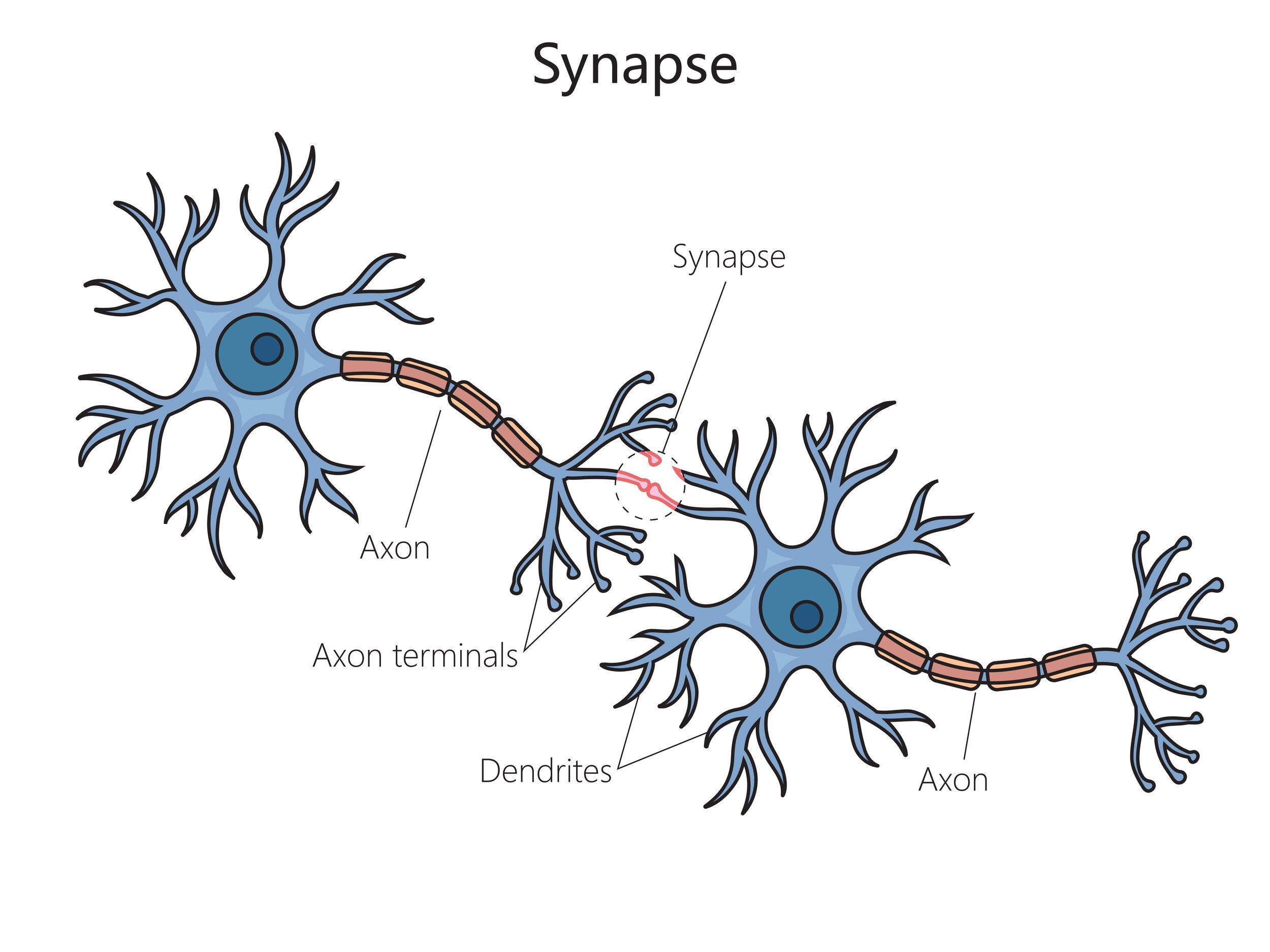Glutamate Excitotoxicity in MND - and How Chocolate Might Help…
The 1% blog explores themes of hope, wellness and discovery in the context of MND / ALS. This article is for informational purposes only and is not medical advice. The author is not a healthcare professional. Please consult a healthcare professional about your own healthcare needs.
Hello, and welcome to The 1% Chance - exploring themes of hope and wellness in MND slash ALS. I’m Graham Dargie - I’ve been living with MND since 2023 and my goal is to go beyond the established narratives around the disease and to write a different story for myself. Today, a bit of a look at the role of the neurotransmitter, Glutamate.
Well, they say MND is a complicated disease - and it really is. I discovered that inside my cells, a combination of protein aggregation, mitochondrial dysfunction, impaired autophagy, oxidative stress, hyperexcitability, and excitotoxicity are all in play, causing a vicious cycle of stress and aggregation. That’s a lot to dig into, but basically, my nerve cells are messed up, either a manufacturing flaw, my lifestyle choices, or a combination of both.
I learned that the body’s primary excitatory neurotransmitter is glutamate. Glutamate is responsible for moving bioelectrical signals across synapses - the tiny gaps between one neurone and the next. Glutamate molecules are expressed from vesicles at the end of one nerve axon and land on receptor sites on the dendrites of the next one. This effectively ‘unlocks’ the next neurone in the network, allowing the bioelectrical signal to keep moving towards its destination. Not all glutamate molecules will land on a receptor and excess glutamate should be cleared away by amino acid transporters - specialised molecules which move excess glutamate away for recycling and reuse later.
According to review by Kaczmarski et al, ‘the concentration of extracellular glutamate is tightly regulated to prevent excitotoxicity – the phenomenon of increased glutamate-related overexcitation of neurons that leads to neurotoxicity and degeneration.’
It’s a pretty neat system, but when it isn’t working properly, excess glutamate can be left in the tiny gap between neurones. I have a mental picture of these lingering molecules forming a loose, erratic connection between neurones - like a flickering lightbulb that hasn’t been screwed in properly - causing involuntary, intermittent signals to move along the network, resulting in the fasciculations I see and feel around my body. This continuous stimulation causes a toxic overworking of the neurone called excitotoxicity. This excitotoxicity eventually leads to death of the affected neurones - meaning that when you think you’d like to move a particular body part, there’s simply no way for that signal to move from your brain to the muscle.
So, is the root of the problem excess glutamate, faulty amino acid transporters, cells that are too damaged by oxidative stress or so clogged up by protein aggregates that they can’t take in the glutamate they’re supposed to recycle? It could be either or all of these things - but one way or another the system is out of sync.
Riluzole is the only drug licensed for use in MND in the UK. According to Tzeplaeff et al Riluzole targets the reduction of glutamate excitotoxicity. It does this by decreasing glutamate release into the synaptic cleft, increasing glutamate reuptake through the activation of amino acid transporters, by inhibiting of glutamate receptors on postsynaptic neurons as well as reducing GABA reuptake. Trial data suggests that Riluzole modestly prolongs life in people living with MND by 2 to 3 months, with possible side effects including asthenia (low energy) and elevated aminotransferase levels - a possible sign of liver disease.
So, armed with an admittedly basic understanding, I wondered if there were any natural ways to influence glutamate levels or the amino acid transporters that clear it away.
Here are three simple steps I’m taking to help:
1. Eating Magnesium-Rich Foods
Magnesium acts as a natural gatekeeper for NMDA receptors - one of the primary glutamate receptors - preventing excessive glutamate activity and excitotoxicity. Foods like spinach, nuts, - pumpkin seeds, and dark chocolate are great sources of magnesium. So, my addiction to 85% dark chocolate is totally justified!
2. Practicing Stress Management
Practicing techniques like Centring Prayer or The Relaxation Response helps reduces the release of stress hormones like cortisol, which can potentially exacerbate excitotoxicity. Mediation is also associated with raising GABA levels, which has a balancing effect on glutamate activity. So, I know when I sit for my (almost) daily meditation, I’m not just chilling my vibes - I’m doing something small to push back against MND.
3. Prioritising Sleep
Research by Watson et al states that, “Concentrations of glutamate and GABA were significantly higher during wakefulness than during NREM sleep and REM sleep” - in other words, glutamate levels peak while we’re awake and decline during sleep. An imbalance between excitatory glutamate and inhibitory GABA signaling is thought to underlie various sleep disorders. It’s quite possible that someone living with MND could have disturbed sleep due to the glutamate / GABA imbalance that comes with the condition but to attempt to restore that balance, it would be good to get better sleep - so, it’s a bit of a chicken and egg situation, as they say. I’ll do another episode about improving sleep soon.
While these steps may not be a cure, evidence suggests they can help regulate glutamate. For me, as someone who wants to support my body against the multi-faceted assault of MND, I think it’s worth adding these approaches as part of my holistic health routine. I believe that every little thing II do contributes to my well-being and that together, these little things combine to make a real difference.
Thanks for listening. I stand with you.
As always, this podcast is just me sharing what I’ve learned and what helps me. It’s not medical advice—please talk to your healthcare team for anything related to your care.
